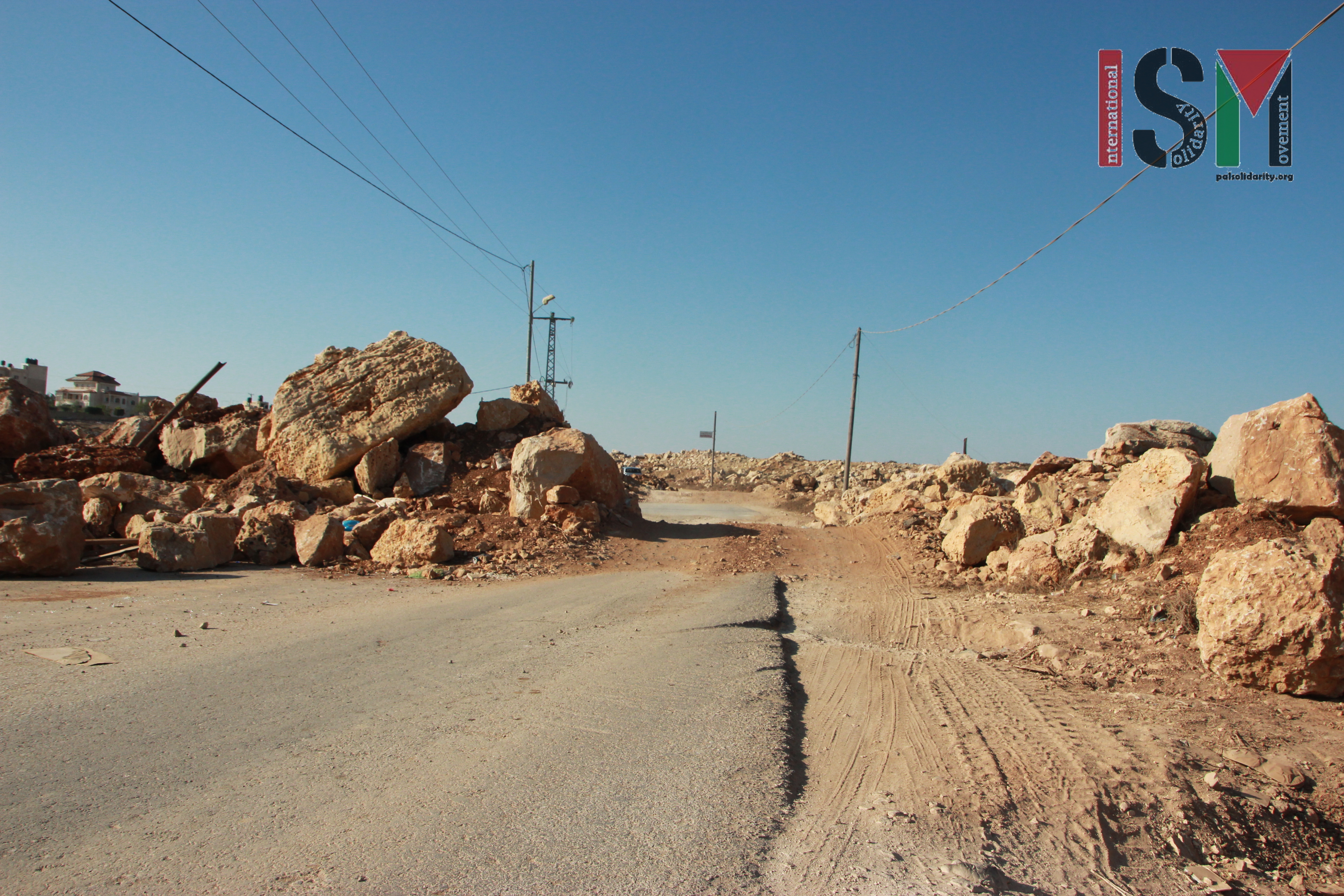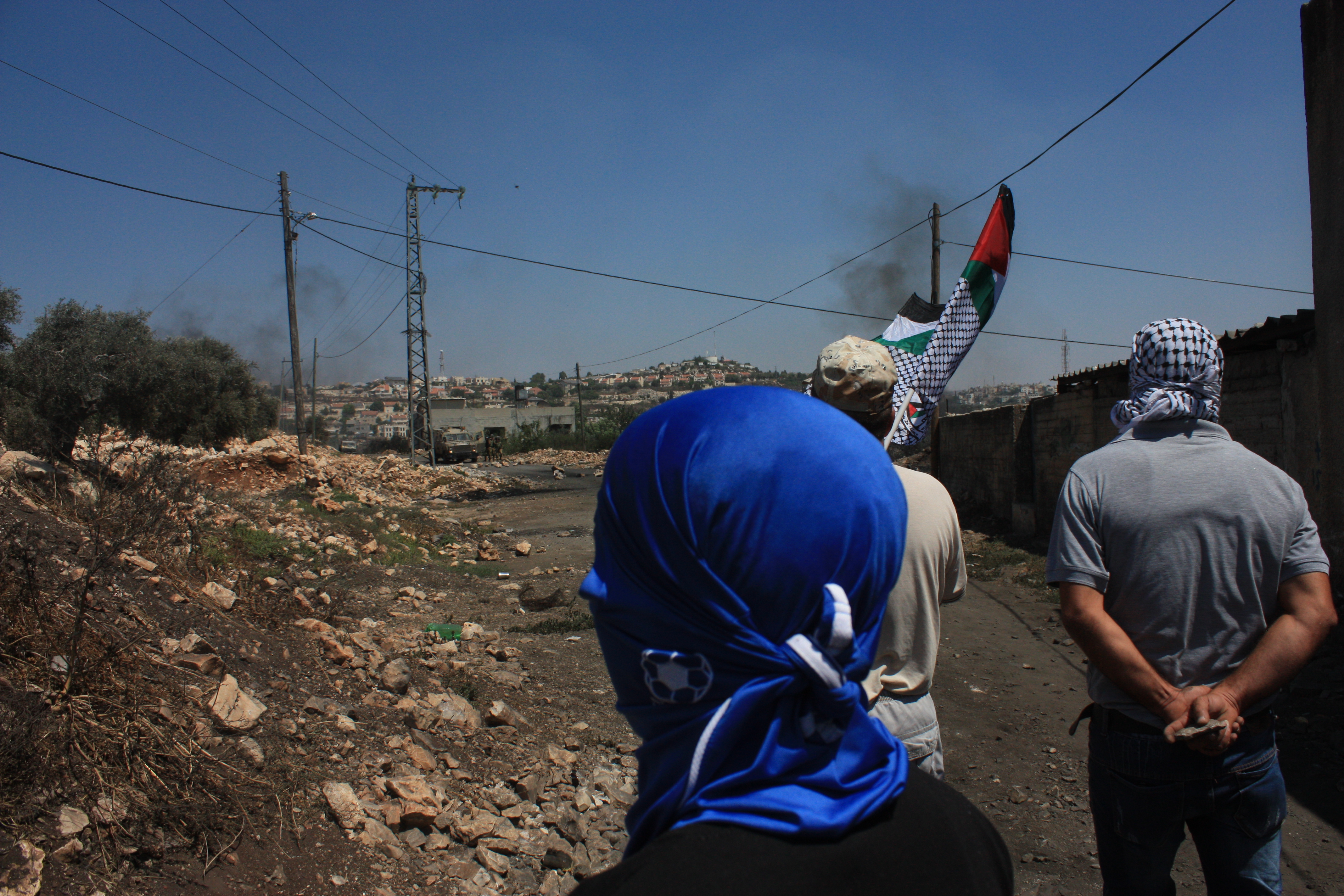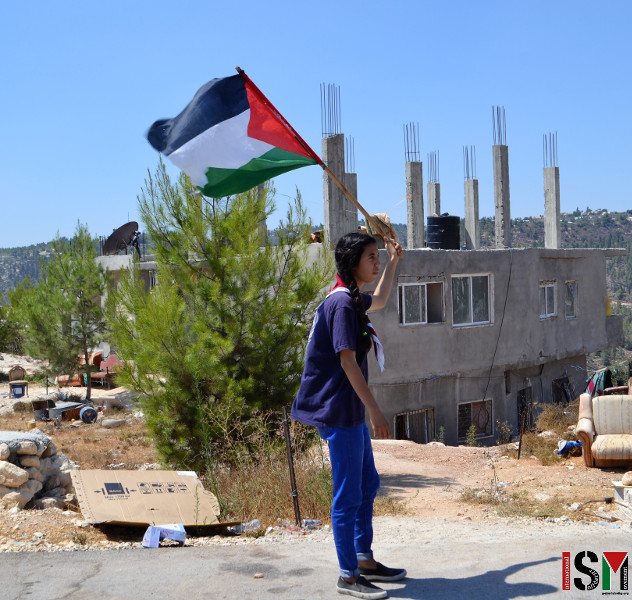Tag: Apartheid Wall
-
Settlers from illegal Halamish settlement block Route 450 for Palestinians in revenge
20th August 2017 | International Solidarity Movement, Huwwara-team | Nabi Saleh, occupied Palestine On 23rd July, two days after the killing of three settlers from the illegal settlement of Halamish, settlers blocked Route 450 with self-made barricades preventing Palestinians from using the main road, which connects Nabi Saleh village with the south Baytillu . The…
-
Israeli occupation forces suppress peaceful protest with rubber-coated steel bullets and live ammunition
20th August 2017 | International Solidarity Movement, Huwwara-team | Kafr Qaddum, occupied Palestine Israeli occupation forces suppressed another non-violent demonstration on Friday the 18th of August, in the village Kafr Qaddum, in the occupied West Bank. The weekly demonstrations protest the closure of the main road connecting the village with Nablus, which is the main…
-
Protest against house demolition in al-Walaje
19th August 2017 | International Solidarity Movement | Al-Khalil team, Occupied Hebron Friday 18th of August, the villagers from al-Walaje, a village near Bethlehem, were peacefully protesting the demolition orders of 22 houses in their village. The residents received the demolition order last month. The Israeli forces want to demolish the houses in order to expand…



